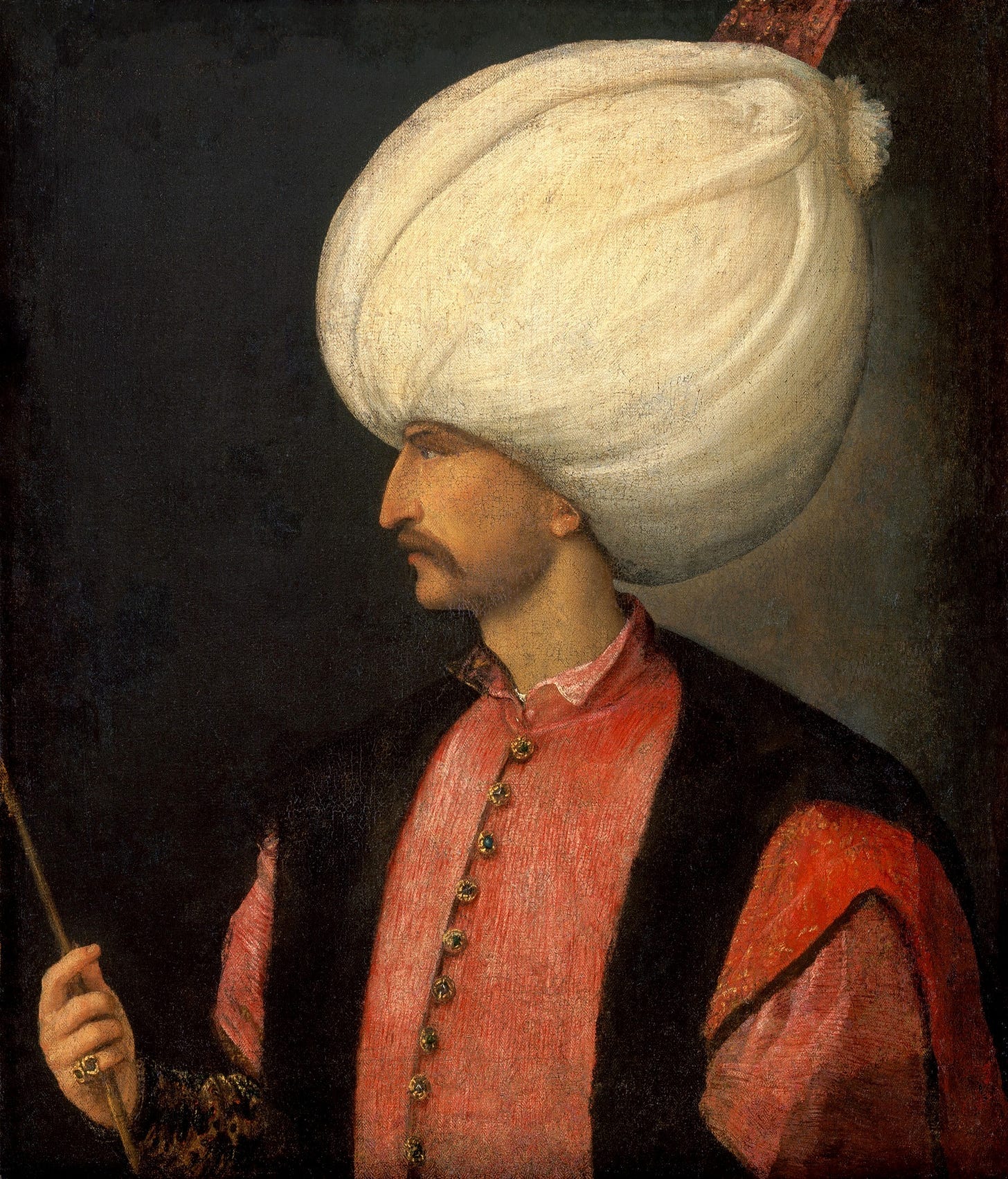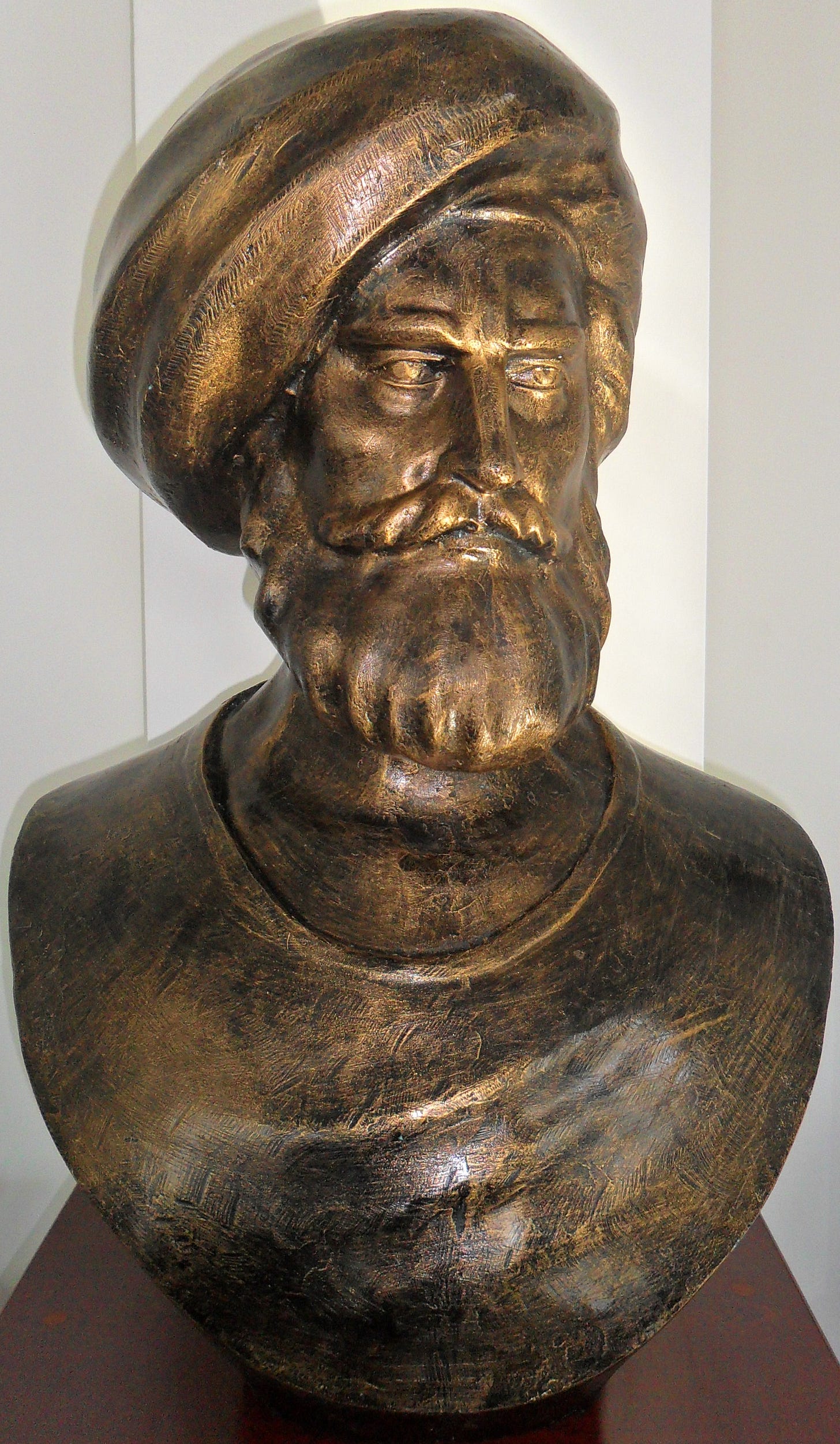ARTICLE: St. Elmo’s Fire
Also, beware an 80 year old pirate with a grudge
‘1565: the Ottoman Empire was at its peak. Under their Sultan, Suleiman the Magnificent, the Turks had conquered most of Eastern Europe, and their galleys ranged the whole length of the Mediterranean. The rulers of Christian Europe were at their wits' end to stem the tide of disaster.
Only forty years earlier the Knights of St. John, the militant spearhead of Christianity against the infidel, had been ousted from their island fortress of Rhodes and driven to find a new home in Malta. But so successful had the Knight’s galleys been in their raids on the Turkish seaborne traffic that Suleiman began to realise, as Hitler was to realise nearly 400 years later, that this sandstone rock, Malta, dominating the narrows between Sicily and Africa, stood between him and complete mastery of the Mediterranean world. He determined to obliterate the Knights of St. John for all time.’
That was a sales pitch I could get on board with when I found a book on offer for £1 rooting about with After Hours co-host Charley at The Eagle in Bedford, one of the bestest second hand bookshops out there. What was doubly interesting was that Hitler/WW2 link, because the author, Ernle Bradford, first visited the island in 1942. ‘I was then a naval officer,’ he wrote, ‘the navigator of a destroyer, and too busy to care about the island's past, or that other great siege which had preceded the one in which I was involved, by nearly four centuries. In 1943 I revisited Malta during the invasion of Sicily. It was then that I saw the island fulfilling the role which Suleiman the Magnificent had envisaged for it… From Malta, the Allied Forces stormed and captured Sicily and Italy.’
What’s in a name?
Suleiman was not modest, but at this point in history, he didn’t need to be. His official title was:
‘Sultan of the Ottomans, Allah's deputy on Earth, Lord of the Lords of this World, Possessor of Men's Necks, King of Believers and Unbelievers, King of Kings, Emperor of the East and West, Emperor of the Chakans of Great Authority, Prince and Lord of the most happy Constellation, Majestic Caesar, Seal of Victory, Refuge of all the People in the whole World, the Shadow of the Almighty dispensing Quiet in the Earth.’
By the mid 1560s, he had reached his seventies and in all those preceding decades he had been an over-achiever. Since coming to the throne at the age of 26, ‘he had reformed and improved the government and administration of Turkey, and had made her the greatest military state in the world. He was unequalled as a statesman, and was a poet in his own right.’ Thanks to him, the Ottoman Empire was now at its peak.
‘His galleys swept the seas from the Atlantic to the Indian Ocean, and his kingdom stretched from Austria to the Persian Gulf, and the shores of the Arabian Sea. Only at the walls of Vienna in 1529 had his armies faltered.’
He was not ready to slow down. In fact, Suleiman was apparently as ambitious as he had always been.
Suleiman the Magnificent (Kunsthistorisches Museum, Wien)
The Sultan had felt slightly bad about kicking Christian Knights off Rhodes nearly half a century before, but he was over it owing to the Order’s collection of galleys, which were constantly out raiding in the vicinity of Malta, their new home. Ridding this corner of the Mediterranean of these infernal Christians was a good enough excuse, but really, it was the possibility of using Malta as a springboard to invade Sicily and Southern Italy, just as the Allies would do half a millennia later, was what made Malta, a mere 18 miles long and nine miles wide, extra shiny.
Key to all this was the fact that the Sultan was being prodded along by another old man, and he’s an absolute maniac. Bradford refers to Dragut as ‘the greatest Mohammedan seaman of his time.’ He was 80 years old. Yes, 80, and yet this pirate was spoiling for a fight. ‘Until you have smoked out this nest of vipers,’ he goaded the Sultan regarding the Knights at Malta, ‘you can do no good anywhere.’
Bust of Dragut in the Mersin Naval Museum (Wikipedia)
Here’s Bradford’s write up on the man:
‘While he was still a boy, a Turkish Governor who happened to be passing through Charabalac was impressed by Dragut's intelligence and character. He took the boy with him to Egypt and had him educated, with the result that, as a young man, Dragut joined the military corps of the Mamelukes as a bombardier. He became an expert in artillery warfare and later, like many another ambitious young man, turned to the sea to seek his fortune. Starting as a gunner aboard corsair ships, he finally became owner of a galley sailing out of Alexandria. From then on, his progress was rapid and assured. The famous corsair Barbarossa took to the young man, and soon Dragut was sailing as one of Barbarossa's lieutenants. Attracted by his intrepidity and cunning, a number of other corsairs joined up with him. Before long he was in command of his own squadron. On the death of Barbarossa in 1545, he was acknowledged as his natural successor, and the greatest scourge of the Christians in the Mediterranean. His record of success, both by land and sea, was such that he earned from his fellow Moslems the well-deserved title of "The Drawn Sword of Islam". The French Admiral, Jurien de la Gravière, assessed him in these terms: "Dragut was superior to Barbarossa. A living chart of the Mediterranean, he combined science with audacity. There was not a creek unknown to him, not a channel that he had not sailed. Ingenious in devising ways and means, when all around him despaired, he excelled above all in escaping by unexpected methods from situations of great peril.’
Some of Dragut’s highlights at the expense of Christians:
Raided Naples
Looted Castellamare, and captured a galley belonging to the Knights with 70,000 ducats aboard.
Stormed the sea port of Bastia in Corsica, carrying off more then 7,000 captives
Took Reggio on the Straits of Messina by storm, enslaving the whole population, men, women and children
And my favourite:
‘Invested by the great Genoese admiral, Andrea Doria, in the North African island of Djerba, he had escaped by a clever ruse, carrying his ships overland to the far end of the island away from the harbour which Doria was blockading. Escaping by night, he had sailed away and captured a large vessel full of reinforcements bound for the Genoese admiral. His escape had made the great Doria the laughing stock of the Mediterranean, a slight which the Admiral never forgave.’
Keep reading with a 7-day free trial
Subscribe to Alex Churchill’s HistoryStack to keep reading this post and get 7 days of free access to the full post archives.



